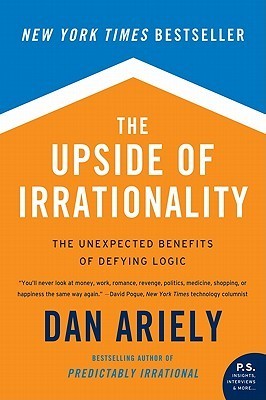
The Undoing Project: A Friendship That Changed Our Minds
Book Description
Two brilliant minds collide in a riveting exploration of choice, chance, and the hidden algorithms of human behavior. Michael Lewis unveils the extraordinary friendship between psychologists Daniel Kahneman and Amos Tversky, whose groundbreaking work transformed our understanding of decision-making and challenged the very foundations of economics. As their bond deepens amid intellectual ferocity and personal turmoil, the stakes elevate, revealing how their discoveries echo in everyday life and reshape our perceptions. Could the way we think really be undone? Prepare for a journey that redefines the power of thought and the unpredictable nature of the human mind.
Quick Book Summary
The Undoing Project by Michael Lewis delves into the profound and unlikely partnership of Daniel Kahneman and Amos Tversky, two Israeli psychologists whose collaboration revolutionized our understanding of human decision-making. Through captivating storytelling, Lewis traces their personal backgrounds, how their unique friendship formed, and the explosive impact of their research. The duo challenged the prevailing wisdom that humans behave rationally, instead revealing—through concepts like heuristics and cognitive biases—that our judgments are often flawed. Their discoveries laid the groundwork for behavioral economics, radically influencing fields from medicine to public policy. The book not only profiles groundbreaking science but also paints a moving portrait of intellectual camaraderie, rivalry, and the complexities of human thought.
Summary of Key Ideas
Table of Contents
The Formation and Significance of a Transformative Friendship
Michael Lewis introduces the distinctive backgrounds and early lives of Daniel Kahneman and Amos Tversky, highlighting their contrasting personalities. Kahneman, introspective and self-doubting, is shaped by childhood trauma during World War II, while Tversky is extroverted, confident, and charismatic, molded by his experiences in the Israeli military. Despite their differences, when their paths cross at Hebrew University, they discover a rare intellectual chemistry that propels their collaborative work to astonishing heights.
Heuristics and Biases: Challenging Rationality
Kahneman and Tversky's partnership is defined by their relentless curiosity about the quirks of human thinking. Together, they uncover that people rely on mental shortcuts—heuristics—to make decisions, which often lead to systematic errors known as cognitive biases. Their studies, such as the evaluation of probabilities and judgments under uncertainty, reveal that intuition is frequently flawed, upending the core tenet of rational choice theory that dominated economics and psychology at the time.
The Birth of Behavioral Economics
The implications of their research reverberate far beyond academia. Their work gives rise to the field of behavioral economics, fundamentally altering how scholars, policymakers, and businesses think about prediction, risk assessment, and market behavior. Through vivid anecdotes, Lewis illustrates the ways in which the insights from Kahneman and Tversky’s experiments have changed approaches to medicine, sports, military strategy, and everyday choices, underscoring the real-world importance of their discoveries.
The Human Consequences of Cognitive Errors
Lewis also delves into the personal dynamics between the two men. As their fame grows, so do professional pressures and personal strains. Their close friendship, once marked by seamless collaboration and mutual admiration, becomes complicated by ambition and recognition. The story traces the emotional toll that breakthrough creativity can exert on even the closest partnerships.
The Personal Costs and Legacy of Innovation
Ultimately, "The Undoing Project" portrays not only a revolution in scientific thought but also explores the human side of genius—the vulnerabilities, conflicts, and enduring impact that shape both the thinkers and the world they change. Lewis expertly weaves narrative and science, illuminating how the undoing of assumptions about thinking—through friendship and research—can remake entire disciplines and touch every facet of life.
Download This Summary
Get a free PDF of this summary instantly — no email required.





